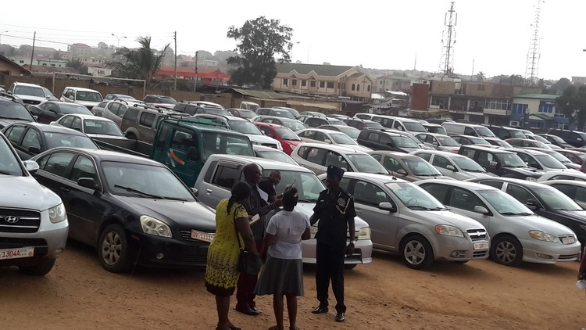What is the fate of second-hand vehicle dealers in the spate of recent government policies banning the importation of salvaged vehicles?
The establishment of the assembly facility and government’s dedication to prohibit the importation of salvaged motor vehicles, as well as used vehicles over 10 years, has created fear and panic for players involved in the secondhand vehicle value chain.
The government, however, made it known that it will make secondhand car dealers, distributors of assembled vehicles in Ghana by the international automobile firms.
Back in March, The Information Minister, Kojo Oppong Nkrumah, confirmed this when he said, “We have an opportunity to explore ways of onboarding them to become the new dealers of these vehicles. So, in the end, we are able to develop a local industry for cars manufactured here in Ghana, create jobs and create incomes and bring more safety on our roads.”
Though the government assures the move will rather create jobs and generate income, will it be the reality?Let’s delve into the pros and cons of banning salvaged and used vehicles over 10 years old.
Pros (factors supporting the ban)
Expensive repairs
Unfortunately, some salvaged vehicles can be quite costly to repair. Some have underlying issues that may be difficult and expensive to fix. It is sometimes prudent to purchase brand new cars than waste resources fixing salvaged vehicles.
Reliability
Salvaged/ used cars may prove unreliable. The older the car, the more money you might have to spend on repairs. Underlying damages may exist that wasn’t properly fixed and would probably rear its head a few months after your purchase. You will then have to continue fixing it.
Environment hazard
Engines of salvaged/ used cars get worn-out with time and are unable to burn the fuel in the appropriate ratio. Such vehicles release a lot of carbon monoxide into the atmosphere which harms the ozone layer leading to global warming.
Cons- Negative consequences of the ban
Lower Prices
One significant reason why salvaged and used cars are bought is the price. Salvaged and used car prices are comparatively lower than new cars. Salvaged and used cars can go for as low as 20-40% less than brand new cars. This makes such cars affordable for most Ghanaians.
The smaller loan amount and quicker payoffs
Used/salvaged vehicles have smaller average loan amounts than new ones due to their low prices. Depending on the terms of the loan, that could mean lower monthly payments, smaller total interest charges and quicker payoff of the loan.
Spare Parts
Salvaged vehicles either through accidents or fire offer a cheap source of spare parts especially when the car is severely damaged.
Employment
Salvaged and/or used cars offer employment opportunities to a large number of Ghanaians especially those involved in the spare parts field. Just a trip to Abossey-Okai will give a blueprint on how many Ghanaians rely on used and salvaged cars as their source of livelihood.
With the advent of the Ghana Automotive Development Policy, it is believed that the prices of brand-new cars may not cost as much as they would like to import them. Since the vehicles are being assembled locally, prices will affordable to Ghanaians.
President Akuffo Addo, speaking at the unveiling of the Volkswagen assembly facility couldn’t have put it any better when he said “The Volkswagen means the people’s car and I am expecting that the brands being assembled in Ghana would not only be affordable but be of the highest quality. I assure Volkswagen Ghana that government will continue to support the company in diverse ways to ensure substantiality.”
It is worthy to note that, the Customs division of the Ghana Revenue Authority will commence enforcement of the law that bans importation of salvaged vehicles into Ghana from the 1st of November 2020.
WATCH VIDEO BELOW ON OUR FREE ‘BUSINESS GROWTH’ WEBINAR….COMING SOON
CLICK HERE TO REGISTER



